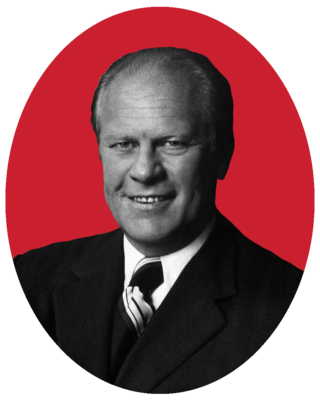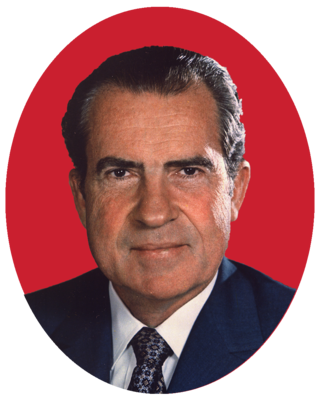Related Research Articles

Winthrop Rockefeller was an American politician and philanthropist. Rockefeller was the fourth son and fifth child of American financier John D. Rockefeller Jr. and Abby Aldrich Rockefeller. He is one of the grandchildren of Standard Oil co-founder John D. Rockefeller. As an entrepreneur in Arkansas, he financed many local projects, including a number of new medical clinics in poorer areas, before being elected state governor in 1966, as the first Republican governor of Arkansas since Reconstruction. Despite accusations of lacking insight into the concerns of low-income voters, Rockefeller was re-elected in 1968, and went on to complete the integration of Arkansas schools.

Nelson Wilmarth Aldrich was a prominent American politician and a leader of the Republican Party in the United States Senate, where he represented Rhode Island from 1881 to 1911. By the 1890s, he was one of the "Big Four" key Republicans who largely controlled the major decisions of the Senate, along with Orville H. Platt, William B. Allison, and John Coit Spooner. Because of his impact on national politics and central position on the pivotal Senate Finance Committee, he was referred to by the press and public alike as the "general manager of the Nation", dominating tariff and monetary policy in the first decade of the 20th century.

The 1976 Republican National Convention was a United States political convention of the Republican Party that met from August 16 to August 19, 1976, to select the party's nominees for president and vice president. Held in Kemper Arena in Kansas City, Missouri, the convention nominated President Gerald Ford for a full term, but only after narrowly defeating a strong challenge from former California Governor Ronald Reagan. The convention also nominated Senator Bob Dole from Kansas for vice president, instead of Vice President Nelson Rockefeller, who did not seek nomination for a full term. The keynote address was delivered by Tennessee Senator Howard Baker. Other notable speakers included Minnesota Representative Al Quie, retired Lieutenant Colonel and former Vietnam prisoner of war Raymond Schrump, former Democratic Texas Governor John Connally, Providence, Rhode Island mayor Vincent Cianci and Michigan Senator Robert P. Griffin. It is the last national convention by either of the two major parties to feature a seriously contested nomination between candidates.

The 1970 United States Senate elections was an election for the United States Senate. It took place on November 3, with the 33 seats of Class 1 contested in regular elections. Special elections were also held to fill vacancies. These races occurred in the middle of Richard Nixon's first term as president. The Democrats lost a net of three seats, while the Republicans and the Conservative Party of New York picked up one net seat each, and former Democrat Harry F. Byrd Jr. was re-elected as an independent.

The 1968 Republican National Convention was held at the Miami Beach Convention Center in Miami Beach, Dade County, Florida, USA, from August 5 to August 8, 1968, to select the party's nominee in the general election. It nominated former Vice President Richard M. Nixon for president and Maryland Governor Spiro T. Agnew for vice president. It was the fourth time Nixon had been nominated on the Republican ticket as either its vice presidential or presidential candidate (1960). Symbolic of the South's changing political affiliation, this was the first Republican National Convention held in a prior Confederate State.

The 1912–13 United States Senate elections were held on various dates in various states. They were the last U.S. Senate elections before the ratification of the Seventeenth Amendment in 1913, establishing direct elections for all Senate seats. Senators had been primarily chosen by state legislatures. Senators were elected over a wide range of time throughout 1912 and 1913, and a seat may have been filled months late or remained vacant due to legislative deadlock. Some states elected their senators directly even before passage of Seventeenth Amendment. Oregon pioneered direct election and experimented with different measures over several years until it succeeded in 1907. Soon after, Nebraska followed suit and laid the foundation for other states to adopt measures reflecting the people's will. By 1912, as many as 29 states elected senators either as nominees of their party's primary or in conjunction with a general election.

Richard Steere Aldrich was an American politician. He was a Republican member of the U.S. House of Representatives, and served in the Rhode Island State Senate and the Rhode Island House of Representatives.

The 1966 Arkansas gubernatorial election was held on November 8, 1966. Winthrop Rockefeller was elected governor of Arkansas, becoming the first Republican to be elected to the office since Reconstruction in 1872.

From March 10 to June 2, 1964, voters of the Republican Party elected 1,308 delegates to the 1964 Republican National Convention through a series of delegate selection primaries and caucuses, for the purpose of determining the party's nominee for president in the 1964 United States presidential election.

From March 12 to June 11, 1968, voters of the Republican Party chose its nominee for president in the 1968 United States presidential election. Former vice president Richard Nixon was selected as the nominee through a series of primary elections and caucuses culminating in the 1968 Republican National Convention held from August 5 to August 8, 1968, in Miami Beach, Florida.
Richard Nixon served as the 37th president of the United States from 1969 to 1974. He previously served as the 36th vice president of the United States from 1953 to 1961, and as a United States senator from 1950 to 1953 and United States representative from 1947 to 1950.

Aylmer Lynn Lowe, known as A. Lynn Lowe, was an American businessman and politician from Garland near Texarkana in Miller County in southwestern Arkansas, who was a major figure in the Arkansas Republican Party. He was the Republican gubernatorial nominee in 1978 against the Democrat Bill Clinton, served as state party chairman from 1974 to 1980, and was the GOP candidate in Arkansas's 4th congressional district in 1966, having been defeated by the Democrat David Pryor, then a state representative and a future governor and U.S. Senator, originally from Camden in Ouachita County in south Arkansas.

The 1996 United States Senate election in Arkansas was held on November 5, 1996. Incumbent Democratic U.S. Senator David Pryor decided to retire. Republican Tim Hutchinson won the open seat, becoming the first Republican to win a U.S. Senate seat in Arkansas since Reconstruction in 1872 and the first to ever be popularly elected in the state. He was the first to win this seat since 1870.

From March 8 to June 7, 1960, voters of the Republican Party chose its nominee for president in the 1960 United States presidential election. Incumbent Vice President Richard Nixon was selected as the nominee through a series of primary elections and caucuses culminating in the 1960 Republican National Convention held from July 25 to July 28, 1960, in Chicago, Illinois.

This article lists those who were potential candidates for the Democratic nomination for Vice President of the United States in the 1972 election. Coming into the 1972 Democratic National Convention, South Dakota Senator George McGovern had the delegate lead, but did not have the presidential nomination locked up. After winning the Democratic nomination for president on July 13, McGovern looked for a running mate. McGovern's first choice for vice president was Ted Kennedy, but Kennedy refused to join the ticket; Minnesota Senator Walter Mondale, Wisconsin Senator Gaylord Nelson, and Connecticut Senator Abraham A. Ribicoff also declined. McGovern offered the position to Missouri Senator Thomas Eagleton, who appealed to labor groups and Catholics, two groups that McGovern had alienated during the primary campaign. The ticket of McGovern and Eagleton was nominated by the 1972 Democratic National Convention. Following the convention, it was revealed that Eagleton had received treatment for depression in the 1960s. Though McGovern considered keeping Eagleton on the ticket, he ultimately chose to replace Eagleton with former ambassador Sargent Shriver. The McGovern–Shriver ticket lost the presidential election to the Nixon–Agnew ticket. After the controversy surrounding Eagleton, future campaigns spent much more time vetting vice presidential candidates.
References
- ↑ "ALDRICH, William, (1820 - 1885)". Bioguide.congress.gov. Retrieved 3 January 2015.
- ↑ "ALDRICH, James Franklin, (1853 - 1933)". Boards.ancestry.com. Retrieved 3 January 2015.
- ↑ "ALDRICH, Nelson Wilmarth, (1841 - 1915)". Bioguide.congress.gov. Retrieved 3 January 2015.
- ↑ "Our Campaigns - Candidate - Richard S. Aldrich". Ourcampaigns.com. Retrieved 3 January 2015.
- ↑ "Winthrop W. Aldrich". Nndb.com. Retrieved 3 January 2015.
- ↑ "Our Campaigns - Candidate - Nelson A. Rockefeller". Ourcampaigns.com. Retrieved 3 January 2015.
- ↑ "Our Campaigns - Candidate - Winthrop Rockefeller". Ourcampaigns.com. Retrieved 3 January 2015.
- ↑ "Our Campaigns - Candidate - Richard S. Aldrich". Ourcampaigns.com. Retrieved 3 January 2015.
- ↑ "Our Campaigns - Candidate - Charles Harting Percy". Ourcampaigns.com. Retrieved 3 January 2015.
- ↑ "Our Campaigns - Candidate - Jay Rockefeller". Ourcampaigns.com. Retrieved 3 January 2015.
- ↑ "Our Campaigns - Candidate - Win Paul Rockefeller". Ourcampaigns.com. Retrieved 3 January 2015.
- ↑ Lawrence Kestenbaum. "The Political Graveyard: Index to Politicians: Dayan to Deamer". Politicalgraveyard.com. Retrieved 3 January 2015.
- ↑ Lawrence Kestenbaum. "The Political Graveyard: Index to Politicians: Procum to Pryde". Politicalgraveyard.com. Retrieved 3 January 2015.